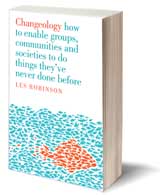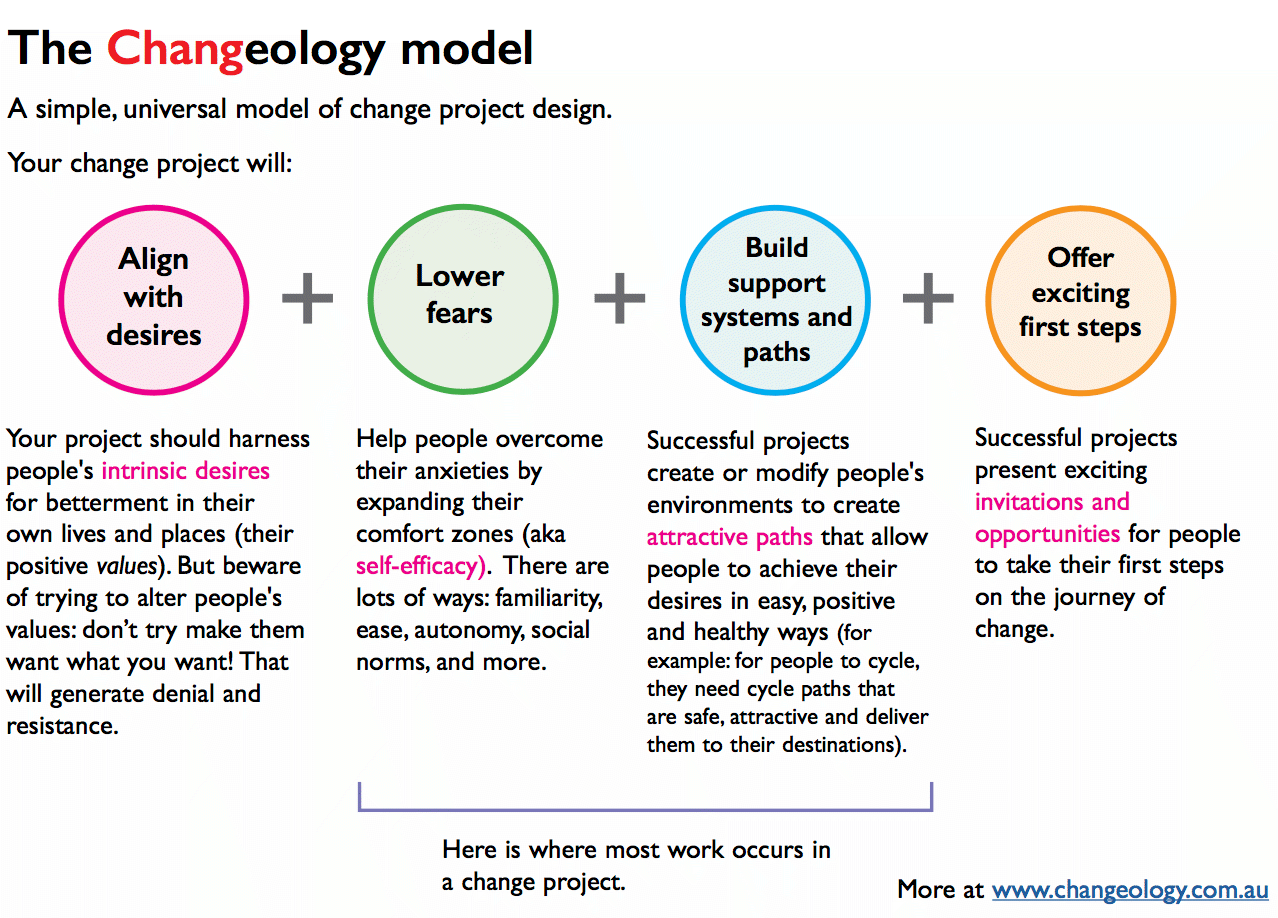|

|
|
About Les Robinson"I realised that, when I adopted new behaviours in my own life, I was choosing behaviours that I thought bettered my life and which felt safe and controllable. Reasons didn’t seem to matter much, it was more about imagination, about being able to visualize myself living a dream. This was the start of the journey of discovery that led to Changeology."Les lives on the coast south of Sydney with wife, young son, 5 chooks and 2 budgies. He's the author of two radically unrelated books: The Field Guide to the Native Plants of Sydney, and Changeology. He likes people and surprises, which is perfect, because his professional life is devoted to facilitating workshops about change, one of which has been described as "Fun as a paddock of baby goats." Les is a specialist in community change who brings science, rigorous process, clear thinking, warmth and fun to the practice of designing change efforts. This interview is a good summary of Les's 'changeology' approach. Les helps organisations devise innovative change projects. He trains their staff and volunteers in the fields of sustainability, health promotion, road safety, natural resource management and emergency management. He facilitates engaging forums, workshops, community events and conferences.
|
|
About ChangeologyChangeology is three things - a knowledge base, a theory and a process for designing change efforts.Here is a quick snapshot of Changeology thinking. Les introduces the key changeology ideas in this video. Changeology is a widely used approach to designing programs and projects. It's especially popular with professionals in sustainability, natural resource management, health promotion, road safety and workplace change. Some 3000 Australian and New Zealand professionals have graduated from the two-day Changeology workshop facilitated by Les Robinson. Changeology has three aspects: First, Changeology is a knowledge base about the psychology of behaviour change, drawing from The Diffusion of Innovations, Risk Perception, Social Learning Theory, Self-Determination Theory, and Social Psychology. This forms the first part of the Changeology workshop, and is covered in detail in Changeology, the book. Second, Changeology is a generic theory of change, drawn from this knowledge base. Here is the short version. Open as PDF.
For a longer version, see the paper Changeology Theory (147k PDF) or read Changeology, the book. Third, Changeology is a rigorous step-by-step practice for devising change programs and projects, based on a synthesis of approaches from many disciplines, finessed by the diverse real life challenges participants have broght to Les's Changeology workshops over 12 years. Here's how the process works (each step has a rapid tool):
|
Summary of the Changeology processFor a detailed description of the process, see:
The Changeology process (260k PDF).
1) Clarify the purpose
This defines a long-term logic of action, in which individual projects sit. 2) Define a project This is all about clarifying who does what.
3) Enable action The Rapid Project Generator tool and the Touch Points Diagram define the tangible components of your project. Innovation methods add creativity and buzzworthiness to your tactics. A persuasive invitation template rapidly generates the key communication for your project. 4) Fast prototyping Quickly mobilising into the field, on a small, low risk scale, allows us drop aspects that don't work, improvise on the fly, build on strengths, and learn our way to what makes a successful project, 5) Collect feedback and evaluate as we go Identifying indicators up front and monitoring as we go generates feedback that lets us actively manage our projects, as well account to funders. |


